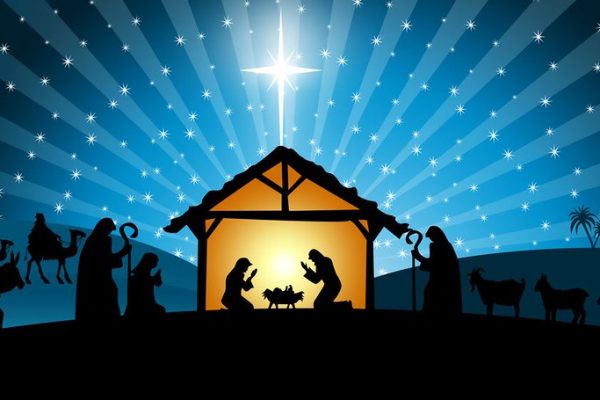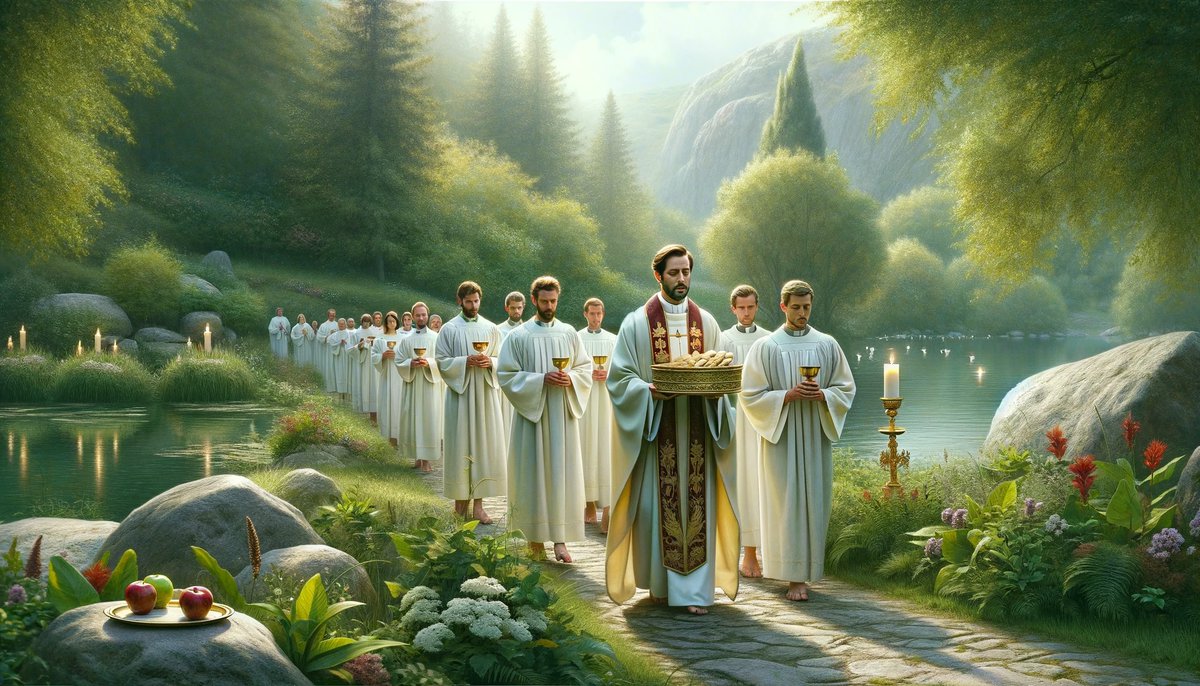Home>Special Themes>Who Celebrates Lent


Special Themes
Who Celebrates Lent
Published: February 27, 2024
Peter Smith, Editorial Director at Christian.net, combines deep insights into faith, politics, and culture to lead content creation that resonates widely. Awarded for his contributions to religious discourse, he previously headed a major organization for religious communicators, enhancing dialogue on faith's societal impacts.
Discover who celebrates Lent and the significance of this special theme in religious traditions around the world. Explore the customs, practices, and observances associated with Lent.
(Many of the links in this article redirect to a specific reviewed product. Your purchase of these products through affiliate links helps to generate commission for Christian.net, at no extra cost. Learn more)
Table of Contents
Introduction
Who celebrates Lent? This question may arise for those who are unfamiliar with the religious observance of Lent. Lent is a significant period in the Christian calendar, but its observance extends beyond Christianity. In this article, we will explore the origins of Lent, the Christian denominations that observe it, the cultural and regional celebrations of Lent, as well as the non-Christian observance of this period. Additionally, we will delve into the significance of Lent in different faiths, shedding light on the diverse ways in which this season is commemorated around the world.
Read more: Celebrities Who Are Baptist
The Origins of Lent
Lent finds its origins in the early Christian church, with its roots tracing back to the 4th century. The word "Lent" itself is derived from the Old English word "lencten," which means spring. This period of fasting and reflection is based on the 40 days that Jesus spent fasting in the wilderness, as recounted in the Gospels of Matthew, Mark, and Luke. The 40-day duration of Lent mirrors this significant event in the life of Jesus.
The observance of Lent is also influenced by the practices of fasting and penance found in the early Christian community. During this time, new converts to Christianity underwent a period of fasting and preparation leading up to their baptism on Easter Sunday. Over the centuries, Lent has evolved into a period of spiritual discipline, self-examination, and repentance for all Christians, not just those preparing for baptism.
The timing of Lent is tied to the liturgical calendar, commencing on Ash Wednesday and concluding on Holy Saturday, the day before Easter Sunday. This 40-day period is symbolic of the time Jesus spent in the wilderness and is often associated with self-denial, reflection, and spiritual growth. The observance of Lent varies among different Christian denominations, with each tradition bringing its own unique customs and practices to this sacred season.
The significance of Lent is deeply rooted in the Christian faith, serving as a time for believers to reflect on the life, death, and resurrection of Jesus Christ. It is a period of spiritual renewal, prayer, and contemplation, as Christians prepare to commemorate the crucifixion and resurrection of Jesus during Holy Week and Easter. The origins of Lent are thus intertwined with the foundational beliefs and practices of the Christian faith, making it a central and revered season in the church calendar.
Christian Denominations that Observe Lent
Lent is observed by a wide range of Christian denominations, each bringing its own traditions and customs to this sacred season. While the observance of Lent is most commonly associated with the Catholic Church, many other Christian traditions also participate in this period of spiritual reflection and preparation. Here are some of the Christian denominations that observe Lent:
- Catholic Church: The Catholic Church has a rich and longstanding tradition of observing Lent. For Catholics, Lent is a time of fasting, abstinence, and penitential practices, including the avoidance of meat on Ash Wednesday and Fridays during Lent. The faithful are encouraged to engage in acts of charity, prayer, and self-discipline as they prepare for the celebration of Easter.
- Eastern Orthodox Church: In the Eastern Orthodox tradition, Lent is known as the Great Lent and holds significant spiritual importance. The observance of Lent in the Eastern Orthodox Church includes a period of fasting, increased prayer, and participation in the sacraments. The faithful abstain from certain foods and follow a liturgical cycle that emphasizes repentance and spiritual growth.
- Lutheran Church: Lutherans also observe Lent as a time of reflection and spiritual discipline. While the specific practices may vary among Lutheran congregations, Lent is generally marked by increased prayer, scripture reading, and acts of service. The emphasis is on preparing the heart and mind for the celebration of Christ’s resurrection at Easter.
- Anglican Communion: Within the Anglican tradition, Lent is observed as a period of self-examination, repentance, and preparation for Easter. Anglicans may engage in fasting, attending special worship services, and participating in charitable activities as part of their Lenten observance.
- Methodist Church: Methodists view Lent as a time for spiritual growth and renewal. Lenten practices in the Methodist tradition may include fasting, attending worship services, and engaging in acts of mercy and compassion. The focus is on deepening one’s relationship with God and preparing for the joy of Easter.
These are just a few examples of the Christian denominations that observe Lent, illustrating the widespread significance of this season within the broader Christian community. While the specific customs and practices associated with Lent may vary among these denominations, the underlying purpose remains consistent: to prepare the hearts and minds of believers for the celebration of Christ’s resurrection and the hope of new life that Easter brings.
Cultural and Regional Celebrations of Lent
The observance of Lent is not only shaped by theological traditions but also by cultural and regional influences. Across the globe, different cultures have developed unique customs and celebrations that are intertwined with the Lenten season. These cultural and regional variations add a rich tapestry of diversity to the observance of Lent, reflecting the multifaceted nature of this sacred period.
1. Carnival and Mardi Gras
In many countries, the period leading up to Lent is marked by vibrant and exuberant celebrations known as Carnival or Mardi Gras. These festivities, characterized by colorful parades, music, dance, and elaborate costumes, serve as a joyful prelude to the solemnity of Lent. Carnival and Mardi Gras celebrations are particularly prominent in regions with strong Catholic traditions, such as Brazil, Italy, and New Orleans. These lively events provide an opportunity for communities to come together in revelry before the onset of the Lenten season.
Read more: Why Do Catholics Celebrate Lent?
2. Traditional Foods and Cuisine
The culinary traditions associated with Lent vary widely across different cultures and regions. In many countries, certain foods hold special significance during Lent, with specific dishes and ingredients being consumed as part of the Lenten observance. For example, in Greece, the custom of consuming seafood and vegetarian dishes during Lent is deeply rooted in the country's Orthodox Christian heritage. Similarly, in Poland, the tradition of serving paczki, a type of filled doughnut, on Fat Thursday (Tłusty Czwartek) is a beloved culinary custom associated with the Lenten season.
3. Processions and Rituals
In various parts of the world, Lent is marked by solemn processions, religious rituals, and acts of devotion that reflect the cultural and religious heritage of the local community. These processions often involve the public display of religious symbols, statues, and icons, as well as the participation of clergy and worshippers in prayerful observances. For example, in the Philippines, the annual observance of Holy Week features elaborate processions and reenactments of the Passion of Christ, drawing large crowds of devotees and tourists alike.
4. Art and Music
The arts play a significant role in the cultural expression of Lent, with music, visual arts, and performance traditions contributing to the spiritual atmosphere of the season. In regions with a rich artistic heritage, such as Spain and Mexico, the period of Lent is accompanied by the creation of intricate religious sculptures, the performance of sacred music, and the staging of dramatic reenactments of biblical events. These artistic expressions serve to deepen the spiritual experience of Lent and engage the senses in acts of devotion and contemplation.
5. Local Traditions and Folklore
Lent is often intertwined with local traditions, folklore, and superstitions that have been passed down through generations. These customs may include the observance of specific feast days, the practice of certain rituals, and the belief in supernatural phenomena associated with the Lenten season. In regions with a strong cultural identity, such as Ireland and parts of Latin America, these local traditions add a distinctive flavor to the observance of Lent, reflecting the unique heritage of each community.
The cultural and regional celebrations of Lent highlight the diverse ways in which this sacred season is observed and honored around the world. These customs and traditions not only enrich the spiritual significance of Lent but also serve as a testament to the enduring influence of faith on the cultural identity of communities across the globe.
Read more: Who Celebrate Advent
Non-Christian Observance of Lent
While Lent is primarily associated with the Christian faith, its observance extends beyond the boundaries of Christianity, with various non-Christian communities and cultures also engaging in practices that bear resemblance to the Lenten season. These non-Christian observances of Lent often reflect themes of fasting, spiritual reflection, and renewal, demonstrating the universal significance of these spiritual practices across different religious and cultural contexts.
1. Islamic Traditions
In the Islamic tradition, the month of Ramadan bears similarities to the Lenten season in terms of its emphasis on fasting, prayer, and self-discipline. During Ramadan, Muslims fast from dawn until sunset, refraining from food, drink, and other physical needs as a means of spiritual purification and self-restraint. The observance of Ramadan also includes increased prayer, recitation of the Quran, and acts of charity, reflecting a parallel focus on spiritual devotion and self-examination akin to the practices of Lent within the Christian tradition.
2. Hindu and Buddhist Practices
In Hinduism and Buddhism, periods of fasting, meditation, and self-discipline are integral to spiritual practice. While not directly equivalent to the Christian observance of Lent, these traditions encompass elements of introspection, restraint, and the pursuit of spiritual growth that resonate with the themes of Lent. For example, the practice of Vipassana meditation in Buddhism and the observance of Ekadashi fasting in Hinduism exemplify the commitment to self-discipline and inner reflection that align with the ethos of Lent.
3. Secular and Mindfulness Practices
In contemporary secular and mindfulness movements, the concept of self-imposed periods of abstinence, reflection, and intentional living shares common ground with the principles of Lent. Practices such as mindful eating, digital detoxes, and intentional living challenges embody a similar spirit of self-discipline and self-awareness, albeit within a non-religious framework. These secular observances underscore the universal human inclination towards seeking periods of introspection and personal growth, mirroring the aspirations of Lent in a non-religious context.
Read more: Why Do Christian Celebrate Lent
4. Indigenous and Folk Traditions
Within indigenous and folk traditions around the world, the observance of seasonal rituals and ceremonies often incorporates elements of fasting, purification, and spiritual renewal that bear resemblance to the themes of Lent. These traditions, rooted in the connection to the natural world and the cycles of life, reflect a deep reverence for the spiritual significance of the changing seasons. Whether through rituals marking the arrival of spring or ceremonies honoring the harvest, these indigenous and folk observances echo the universal themes of rebirth, renewal, and spiritual awakening that are central to the spirit of Lent.
The non-Christian observance of Lent encompasses a diverse array of spiritual, cultural, and secular practices that resonate with the themes of fasting, self-discipline, and spiritual reflection. While these observances may differ in their specific religious or cultural contexts, they collectively underscore the universal human quest for inner transformation, renewal, and connection to the sacred, transcending the boundaries of any single faith tradition.
The Significance of Lent in Different Faiths
Lent holds profound significance in various faith traditions, each infusing this period with unique spiritual meanings and practices that reflect the core tenets of their respective beliefs. While Lent is most commonly associated with Christianity, its observance and equivalent practices can be found in other faiths, each offering insights into the universal themes of fasting, introspection, and spiritual renewal.
1. Christianity
In Christianity, Lent is a time of preparation, self-examination, and repentance leading up to the celebration of Easter. It holds deep theological significance, symbolizing the 40 days that Jesus spent fasting in the wilderness and culminating in the commemoration of his crucifixion and resurrection. The Lenten season is marked by acts of self-denial, prayer, and almsgiving, serving as a period of spiritual discipline and renewal for believers across denominational lines.
2. Islam
In Islam, the month of Ramadan embodies principles akin to those of Lent, emphasizing fasting, prayer, and self-discipline. Ramadan holds great spiritual significance as a time of heightened devotion, self-reflection, and increased acts of charity. Muslims fast from dawn to sunset, refraining from food, drink, and other physical needs, while engaging in additional prayers and recitation of the Quran. The observance of Ramadan underscores the themes of spiritual purification, self-restraint, and communal solidarity.
Read more: Why Do We Celebrate Lent?
3. Hinduism
Within Hinduism, the practice of fasting and self-discipline is integral to spiritual observance. While not directly equivalent to Lent, Hindu traditions encompass periods of fasting, meditation, and self-restraint as a means of spiritual purification and inner growth. The observance of fasting, particularly during auspicious days and festivals, reflects the pursuit of self-discipline and spiritual elevation, resonating with the ethos of Lent in its emphasis on introspection and self-denial.
4. Buddhism
In Buddhism, the practice of Vipassana meditation and the observance of Uposatha days share parallels with the themes of Lent. Vipassana meditation, focused on mindfulness and insight, embodies the pursuit of self-awareness and spiritual growth, akin to the introspective nature of Lent. The Uposatha days, marked by increased meditation, study of the Dharma, and observance of precepts, reflect the commitment to self-discipline and ethical conduct, aligning with the principles of Lent in their emphasis on spiritual reflection and moral renewal.
5. Secular and Mindfulness Movements
In contemporary secular and mindfulness movements, the concept of intentional living, digital detoxes, and mindful practices mirrors the spirit of Lent in a non-religious context. These movements emphasize self-imposed periods of abstinence, reflection, and intentional living, embodying a universal human inclination towards seeking periods of introspection and personal growth. The secular observance of intentional living resonates with the ethos of Lent, reflecting the universal quest for inner transformation and self-awareness.
6. Indigenous and Folk Traditions
Within indigenous and folk traditions, the observance of seasonal rituals and ceremonies often incorporates elements of fasting, purification, and spiritual renewal that echo the themes of Lent. These traditions, rooted in the connection to the natural world and the cycles of life, reflect a deep reverence for the spiritual significance of the changing seasons. Whether through rituals marking the arrival of spring or ceremonies honoring the harvest, these indigenous and folk observances embody the universal themes of rebirth, renewal, and spiritual awakening that are central to the spirit of Lent.
The significance of Lent in different faiths underscores the universal human quest for inner transformation, renewal, and connection to the sacred, transcending the boundaries of any single faith tradition. Each tradition brings its own rich tapestry of spiritual practices and observances, offering profound insights into the shared aspirations for spiritual growth, self-discipline, and the pursuit of inner renewal across diverse faith communities.
Read more: Why Don’t Protestants Celebrate Lent?
Conclusion
In conclusion, the observance of Lent extends beyond the boundaries of Christianity, encompassing a diverse tapestry of cultural, regional, and non-Christian practices that reflect the universal themes of fasting, introspection, and spiritual renewal. From its origins in the early Christian church to its widespread observance in various Christian denominations, Lent holds profound theological significance as a period of preparation and spiritual discipline leading up to the celebration of Easter. The cultural and regional celebrations of Lent add a vibrant dimension to its observance, showcasing the diverse customs, traditions, and rituals that enrich the spiritual tapestry of this sacred season. Furthermore, the non-Christian observance of Lent, spanning Islamic, Hindu, Buddhist, secular, and indigenous traditions, underscores the universal human quest for inner transformation, renewal, and connection to the sacred, transcending the boundaries of any single faith tradition. The significance of Lent in different faiths illuminates the shared aspirations for spiritual growth, self-discipline, and the pursuit of inner renewal across diverse religious and cultural contexts, reaffirming the enduring relevance of this sacred season in the tapestry of human spirituality.










